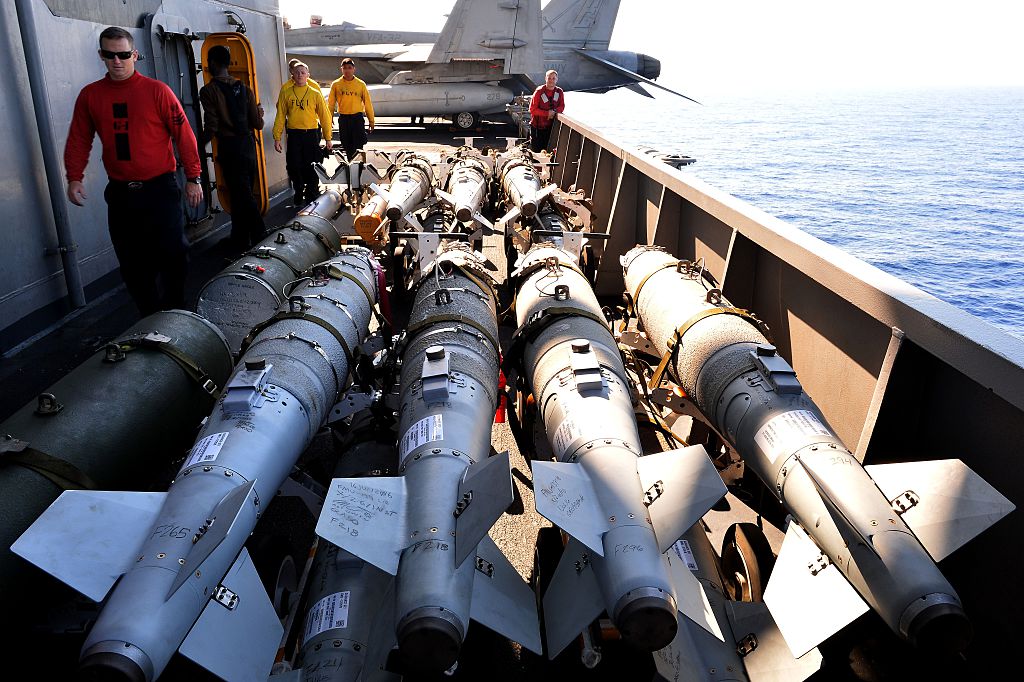America has hit ISIS with 9,400 airstrikes in Iraq over 2 years. Here's what that has accomplished.


On Aug. 8, 2014, the U.S. began bombing the Islamic State around Sinjar in northern Iraq, beginning what has become a larger U.S.-led air campaign against ISIS in Iraq and Syria. In the two years since, the U.S. has conducted more than 9,400 strikes on ISIS in Iraq and another 4,700 in Syria (while 12 coalition countries have hit ISIS with 3,018 strikes in Iraq and 249 in Syria). These anti-ISIS airstrikes have cost the U.S. $11.9 million a day, or $8.4 billion as of July 15, and three U.S. service members have been killed in combat in Iraq and Syria. The U.S. says since Operation Inherent Resolve began two years ago, ISIS has lost more than 40 percent of its territory in Iraq and Syria.
When announcing the operation, President Obama said that he will "not allow the United States to be dragged into fighting another war in Iraq," and "American combat troops will not be returning to fight in Iraq." That has meant an air war, supporting the Iraqi army and various militias, most notably the Kurdish peshmerga and YPG forces, though the U.S. has about 3,800 military personnel stationed in Iraq, plus hundreds more on temporary duty, according to the Pentagon. The use of U.S. air power has been a major driver in ISIS's losses, but as The Associated Press notes, the airstrikes have "also leveled entire neighborhoods," leaving "in many cases... a ruined prize." You can learn more about what Iraq has gained and ISIS has lost over the past two years at AP and the Defense Department.
A free daily email with the biggest news stories of the day – and the best features from TheWeek.com
The Week
Escape your echo chamber. Get the facts behind the news, plus analysis from multiple perspectives.

Sign up for The Week's Free Newsletters
From our morning news briefing to a weekly Good News Newsletter, get the best of The Week delivered directly to your inbox.
From our morning news briefing to a weekly Good News Newsletter, get the best of The Week delivered directly to your inbox.
Peter has worked as a news and culture writer and editor at The Week since the site's launch in 2008. He covers politics, world affairs, religion and cultural currents. His journalism career began as a copy editor at a financial newswire and has included editorial positions at The New York Times Magazine, Facts on File, and Oregon State University.
-
 British warship repels 'largest Houthi attack to date' in the Red Sea
British warship repels 'largest Houthi attack to date' in the Red SeaSpeed read Western allies warn of military response to Iranian-backed Yemeni rebels if attacks on ships continue
-
 Houthi rebels claim Red Sea ship attacks
Houthi rebels claim Red Sea ship attacksspeed read Iran-backed Yemeni group vows to escalate aggression towards Israel-linked vessels in revenge for Gaza war
-
 Israel plans next phase of Gaza war as first hostages released
Israel plans next phase of Gaza war as first hostages releasedSpeed read After four-day ceasefire 'we will not stop' until destruction of Hamas, says Israel
-
 Mob storms Russian airport 'looking for Jews'
Mob storms Russian airport 'looking for Jews'Speed Read Plane from Israel surrounded by rioters chanting antisemitic slogans after landing in Russia's Dagestan region
-
 Tuberville's military promotions block is upending lives, combat readiness, 3 military branch chiefs say
Tuberville's military promotions block is upending lives, combat readiness, 3 military branch chiefs saySpeed Read
-
 Ukraine's counteroffensive is making incremental gains. Does it matter in the broader war?
Ukraine's counteroffensive is making incremental gains. Does it matter in the broader war?Speed Read
-
 US commissions first-ever Navy ship in a foreign port
US commissions first-ever Navy ship in a foreign portSpeed Read
-
 British spy chief, Wagner video suggest Prigozhin is alive and freely 'floating around'
British spy chief, Wagner video suggest Prigozhin is alive and freely 'floating around'Speed Read



